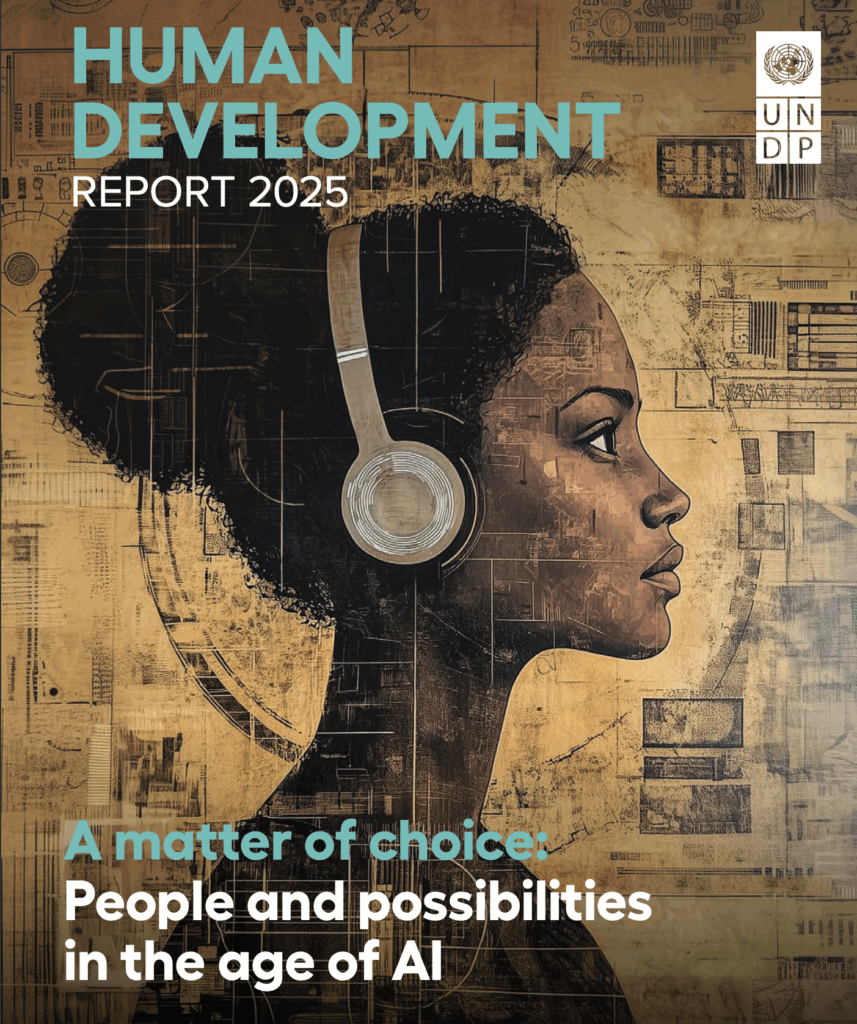HDR 2025: People and Possibilities in the Age of AI
The 2025 Human Development Report by the United Nations Development Programme (UNDP) delivers a stark warning: global human development is slowing at an unprecedented rate. Excluding the COVID-19 crisis years of 2020–2021, the rise in the Human Development Index (HDI)—which integrates metrics of health, education, and income—is the weakest since the index’s creation in 1990. This troubling stagnation challenges assumptions that human progress is linear or inevitable, and it signals a deeper systemic crisis that threatens global security, equity, and well-being.
For the fourth consecutive year, the gap between low-HDI and very high-HDI countries has widened, reversing decades of gradual convergence. The report highlights how fragile economies—already grappling with external debt burdens, volatile trade dynamics, and the phenomenon of “jobless industrialization”—are being left further behind. Rather than catching up, many developing countries are now sliding backward. The situation is exacerbated by a global climate of economic uncertainty, geopolitical tension, and uneven access to the digital economy.
Against this backdrop, the report introduces Artificial Intelligence (AI) not as a cure-all, but as a critical and potentially transformative tool. AI has advanced with remarkable speed, and its integration into daily life is accelerating. The 2025 report, titled “A Matter of Choice: People and Possibilities in the Age of Artificial Intelligence”, argues that AI could provide a much-needed leap forward in development—if it is leveraged wisely. It emphasizes the importance of embedding human agency, ethical design, and inclusive access into the full AI lifecycle.
Public opinion captured in a new global survey reveals a nuanced view of AI’s impact. While 50% of respondents believe their jobs could be automated, even more—60%—expect AI to positively influence employment by opening up new kinds of jobs, many of which do not yet exist. The optimism is especially strong in low- and medium-HDI countries, where 70% believe AI will increase their productivity, and two-thirds expect to use AI in education, healthcare, or work in the coming year. This suggests a strong appetite for technological integration—provided that barriers to access can be overcome.
About two- thirds of survey respondents in low, medium and high Human Development Index (HDI) countries expect to use artificial intelligence in education, health and work within one year
https://hdr.undp.org/system/files/documents/global-report-document/hdr2025reporten.pdf[/caption]
The report identifies three key policy priorities: first, building economies where people work with AI rather than being displaced by it; second, ensuring human oversight and participation throughout AI’s development and deployment processes; and third, modernizing public services such as education and healthcare to match 21st-century needs. These shifts, however, cannot be achieved without addressing fundamental infrastructure gaps—particularly access to electricity and high-speed internet—which remain out of reach for many in low-income nations. As the report notes, the true divide will not be about who has access to AI, but about who can use it meaningfully to enhance their lives.
Crucially, the report frames the next decade as a decisive window for action. It warns that if today’s sluggish development trends become normalized, the global goal of achieving very high human development by 2030 could be delayed by decades. This would entrench global divisions and amplify vulnerability to economic and environmental shocks. But the report also emphasizes that the future is not preordained—it is a matter of choice. Human decisions, particularly those related to technological governance, global solidarity, and inclusive development strategies, will determine whether AI becomes a force for progress or a new axis of inequality.
In sum, the 2025 Human Development Report is both a diagnosis of a global development slowdown and a roadmap for renewal. It urges governments, civil society, and the private sector to adopt a people-first approach to AI, harnessing it as a means to empower individuals, reduce inequality, and break out of the current developmental stagnation. With the right choices, AI can serve not just as a technological breakthrough, but as a bridge to a more inclusive, equitable, and resilient future for all.
- By Strategers

